Premium Only Content

Uneducated Economist on Mike in the Night! His Predictions and Analysis
tp watch full show go here : https://rumble.com/v41ir1q-mike-in-the-night-e538-next-weeks-news-today-headlines-call-ins.html
The Federal Reserve, often referred to as the Fed, is the central banking system of the United States. It was created by the Federal Reserve Act of 1913 and plays a crucial role in the country's monetary policy, financial stability, and economic well-being. The Federal Reserve operates independently within the government, and its structure is designed to insulate it from direct political influence.
Here are key aspects of the Federal Reserve and its independence:
Structure:
The Federal Reserve System consists of three main components: the Board of Governors, the 12 regional Federal Reserve Banks, and the Federal Open Market Committee (FOMC).
The Board of Governors is a government agency located in Washington, D.C. It is composed of seven members, including the chair and vice chair, who are appointed by the President of the United States and confirmed by the Senate. Governors serve staggered 14-year terms to reduce the potential for short-term political influence.
The 12 regional Federal Reserve Banks are distributed across the country, and they operate as quasi-independent entities. Each bank is overseen by a board of directors, and member banks in each district participate in the selection of these directors.
Independence:
The Federal Reserve is designed to be independent within the government to avoid short-term political pressures that could lead to decisions that prioritize political interests over long-term economic stability.
The term "independence" does not mean the Fed is completely free from government oversight. The Fed is still accountable to Congress and must regularly report on its activities. However, its day-to-day operations and decisions about monetary policy are intended to be shielded from direct political interference.
Monetary Policy:
The primary function of the Federal Reserve is to conduct monetary policy, which involves managing the money supply and interest rates to achieve the dual mandate of price stability and maximum sustainable employment.
The FOMC, a key decision-making body within the Fed, sets monetary policy by influencing short-term interest rates through open market operations, discount rates, and reserve requirements.
Financial Stability:
The Federal Reserve also plays a critical role in maintaining the stability of the financial system. It monitors and regulates banks, implements policies to address financial crises, and acts as a lender of last resort to prevent systemic collapses.
While the Federal Reserve is independent in its decision-making, its actions and policies can have significant implications for the overall economy. The independence of the Fed is seen as a way to insulate monetary policy from short-term political considerations and to promote long-term economic stability.
Federal Reserve, Central Banking, Monetary Policy, Economic Stability, Financial System, Board of Governors, FOMC, Independence, Federal Reserve Act, Interest Rates, Open Market Operations, Discount Rates, Reserve Requirements, Dual Mandate, Price Stability, Employment, Government Oversight, Political Independence, Financial Regulation, Lender of Last Resort, Economic Well-being, Inflation, Federal Reserve Banks, Congress, Washington D.C., Quasi-independent, Systemic Collapse, Money Supply, Bank Regulation, Financial Crisis, Political Influence, Short-term Pressures
-
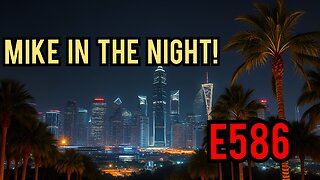 3:15:09
3:15:09
Mike Martins Channel
3 days ago $1.99 earnedMike in the Night E586, Nothing will be the same, Headlines , Call ins
3.45K4 -
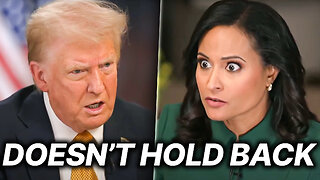 16:40
16:40
Russell Brand
12 hours agoTHIS MASSIVELY BACKFIRED...
156K508 -
 25:41
25:41
SB Mowing
16 hours agoPICTURE living next to THIS and not knowing what to do…
105K35 -
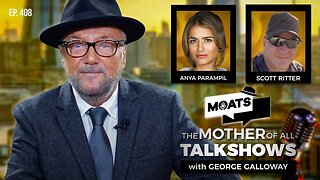 2:16:01
2:16:01
George Galloway
1 day agoNEW YEAR COUNTDOWN - MOATS with George Galloway - EP 408
115K151 -
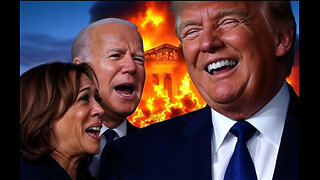 18:39
18:39
Stephen Gardner
12 hours ago🔥BREAKING! Trump's SHOCKING New Demand | Biden admits DOJ TARGETED Trump Illegally!
90.2K387 -
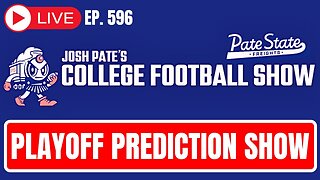 1:20:23
1:20:23
Josh Pate's College Football Show
18 hours ago $14.97 earnedCFP Prediction Special: OhioSt vs Oregon | UGA vs Notre Dame | Texas vs ASU | Boise vs PennSt
116K6 -
 7:50:03
7:50:03
Scottish Viking Gaming
16 hours ago💚Rumble :|: SUNDAY FUNDAY :|: Virginia has two Verginers, Change my Mind!
123K18 -
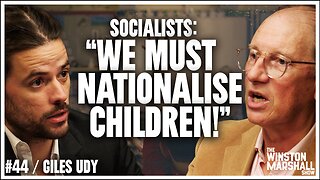 1:49:50
1:49:50
Winston Marshall
2 days agoThe DARK Reality of Socialism - Historian Giles Udy
97.6K89 -
 1:09:28
1:09:28
Sports Wars
15 hours agoBengals STAY ALIVE In OT Thriller, ESPN's Ryan Clark SLAMMED, NFL DESTROYS NBA On Christmas
80.2K12 -
 9:37
9:37
EvenOut
1 day ago $5.40 earnedThe Non-Reflecting Mirror Scare Twin Prank!
68.6K4